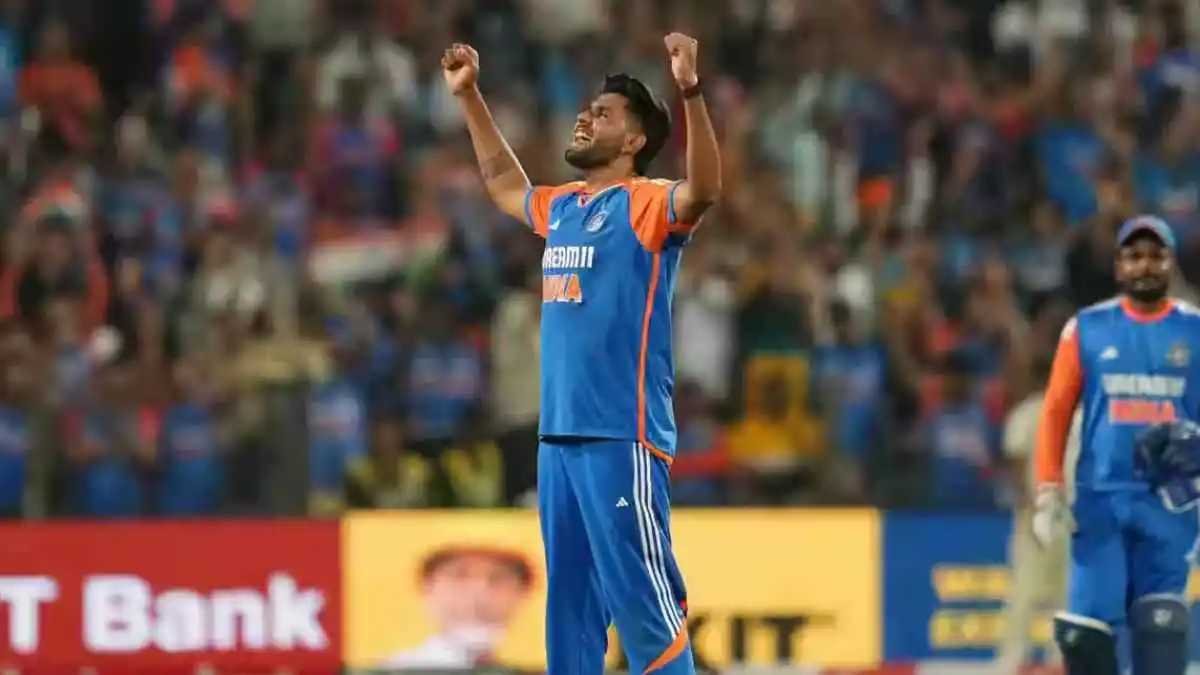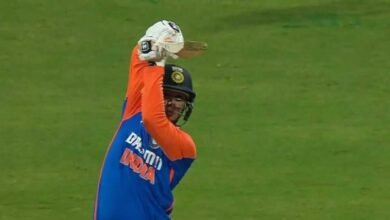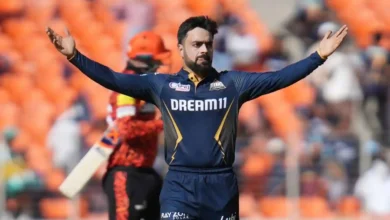Chris Broad Criticizes the ICC Over Concussion Substitute Controversy in IND vs ENG 4th T20I: Accusations of Bias and Corruption

The fourth T20I between India and England, held on [Date], was not just a thrilling encounter on the field, but it became the center of a fierce controversy. What should have been a routine match turned into a storm of debate after a contentious decision regarding a concussion substitute. Former ICC match referee Chris Broad, a stalwart of the cricketing world, publicly criticized the decision, calling out what he perceived as bias and corruption within the officiating process. His scathing remarks have sparked intense discussion not only within the cricket community but also in the broader sports world, with concerns raised about the integrity of cricket officiating and the role of the International Cricket Council (ICC) in upholding fair play.
Background: The Concussion Substitute Controversy
The controversial incident began when India’s Shivam Dube was struck on the helmet by a bouncer from England’s fast bowler, Jamie Overton. Dube, who had been batting well at the time, initially seemed unaffected, but later, he did not appear for the second innings, sparking speculation that he had sustained a concussion. This led India to request a concussion substitute. Under the rules of cricket, a player who is diagnosed with a concussion may be replaced by a player who is seen as a “like-for-like” substitute. Harshit Rana, an uncapped player, was brought in to replace Dube.
The situation quickly became controversial when England’s captain, Jos Buttler, raised objections, claiming that the replacement was not “like-for-like.” Buttler pointed out that Rana, a fast bowler, was not a direct replacement for Dube, a top-order batsman. England’s team and many within the cricketing world were puzzled by the decision, with questions being raised over whether the substitution was in line with the spirit of the concussion substitute rule.
The crux of the controversy rested on the interpretation of what constitutes a “like-for-like” replacement. According to the laws of the game, the substitute should generally be someone who plays a similar role to the injured player, meaning that a batsman should be replaced by another batsman and a bowler by another bowler. However, in this instance, the substitution involved a bowler replacing a batsman, which left many wondering whether the decision adhered to the intentions of the concussion substitute policy or whether it was an attempt to gain an unfair advantage.
Chris Broad’s Criticism of the Decision
In the aftermath of the match, Chris Broad, the former England cricketer and ICC match referee, was quick to voice his displeasure. Broad has decades of experience in cricket and officiating, and his opinion carries considerable weight in the cricketing world. His comments were pointed and accusatory, as he suggested that the decision to allow the substitution was a case of bias and potential corruption within the ICC’s decision-making process.
In a series of social media posts and interviews, Broad lashed out at the ICC, stating that independent match officials were introduced to ensure fairness and transparency, particularly in contentious situations like this. He argued that the incident in the IND vs ENG T20I demonstrated a return to the “bad old days” of bias in cricket and accused the ICC of allowing such practices to persist under their watch. Broad’s sharp words echoed frustrations within the cricketing community, where many felt that the integrity of the game was being compromised.
Broad’s critique highlighted the fact that the ICC’s guidelines for concussion substitutes have always been a point of contention. While the intention of the rule was to provide injured players with the chance to receive a replacement, the grey area surrounding what qualifies as “like-for-like” has led to differing interpretations. Broad’s comments were particularly pointed as he emphasized the need for clarity in such decisions and the necessity for fair and unbiased officiating, something that he felt was lacking in this instance.
What Are Concussion Substitutes in Cricket?
To fully understand the controversy, it’s important to first grasp the nature of concussion substitutes in cricket. The introduction of concussion substitutes in international cricket came after a number of high-profile injuries in the sport, most notably the incident involving Australian batsman Phillip Hughes, who tragically died after being struck on the neck by a bouncer in 2014. This prompted the ICC to revisit the rules surrounding player injuries, and in 2019, they introduced the concussion substitute rule.
Under this rule, a player who suffers a concussion during a match is allowed to be replaced by a substitute. However, the key stipulation is that the replacement must be “like-for-like,” meaning that the substitute should be of similar skill and function to the player being replaced. The rationale behind this rule was to prevent teams from exploiting the system by using it to make tactical substitutions, such as replacing an underperforming player with a stronger one.
In theory, the concussion substitute rule is designed to ensure player welfare while maintaining fairness during a match. However, as seen in the IND vs ENG 4th T20I, the rule is open to interpretation, particularly when it comes to defining what constitutes a “like-for-like” replacement. In this case, the decision to replace Dube, a batsman, with Rana, a fast bowler, immediately raised questions as to whether the substitution adhered to the spirit of the law.
The Debate: Was the Substitution Fair?
While Broad criticized the ICC’s handling of the situation, there were also voices in support of the decision to allow the substitution. Some commentators argued that the rule itself does not explicitly prohibit a batsman being replaced by a bowler. They pointed out that the primary objective of the concussion substitute rule is to ensure that a team is not left unfairly disadvantaged if a player is injured. Under this interpretation, if a player is unable to continue due to a concussion, they should be replaced by someone who can contribute meaningfully to the team’s performance, regardless of whether they play the same role as the original player.
Proponents of the substitution also argued that the decision was consistent with the principle of player welfare, as it allowed India to continue the match without being penalized for a potentially serious injury to Dube. The replacement of a batsman with a bowler, while unconventional, was seen by some as a reasonable response given the circumstances.
However, critics remained unconvinced. Many argued that allowing a bowler to replace a batsman undermined the integrity of the game. They contended that the substitution was not a “like-for-like” replacement, and therefore, should not have been permitted under the spirit of the rule. This perspective was shared by England captain Jos Buttler, who voiced his frustration at the decision, calling it an unfair advantage for India and an inappropriate use of the concussion substitute rule.
Broader Implications: The Role of the ICC and the Need for Clarity
The controversy surrounding the concussion substitute in the IND vs ENG 4th T20I brings into focus the broader issue of officiating standards in cricket. The ICC has long been the governing body responsible for maintaining the integrity of the game and enforcing fair play. However, incidents like this raise questions about whether the ICC is doing enough to ensure that its guidelines are clear, consistent, and unbiased.
Chris Broad’s comments were not merely about this one substitution but also about the broader issue of officiating in international cricket. His criticism of the ICC reflects a growing sentiment within the cricketing community that the governing body must do more to safeguard the fairness of the game. The lack of clear guidelines surrounding concussion substitutes has led to confusion and inconsistency in how the rule is applied, and incidents like this further fuel doubts about the integrity of match officiating.
: Moving Forward
As the dust settles on the controversial substitution in the IND vs ENG 4th T20I, it is clear that the issue of concussion substitutes is far from resolved. While the ICC has attempted to address player welfare concerns with the introduction of this rule, the lack of clarity and consistency in its application suggests that further work is needed to ensure fairness in its use.
Chris Broad’s comments have reignited the debate over the integrity of cricket officiating and the role of the ICC in maintaining transparency and impartiality. The controversy surrounding the concussion substitute serves as a reminder of the challenges that the ICC faces in enforcing its rules consistently across all formats and nations.
Moving forward, it is essential for the ICC to provide clearer guidelines on what constitutes a “like-for-like” replacement and to ensure that all decisions regarding concussion substitutes are made with fairness and transparency. Only then can the cricketing world move past the controversy and focus on the game itself. For now, the incident serves as a reminder that, even in a sport as beloved as cricket, the question of integrity remains at the forefront of the conversation.



